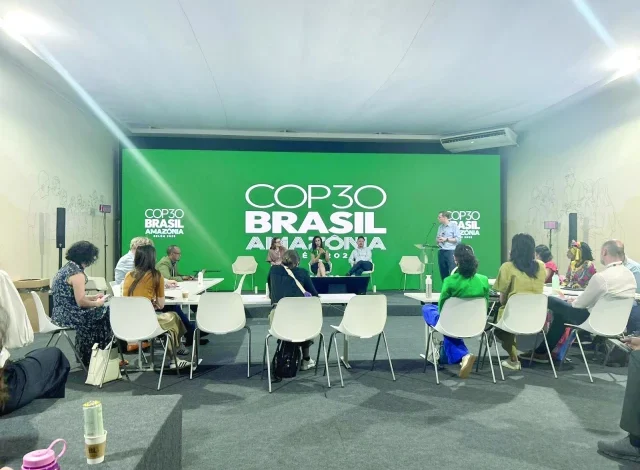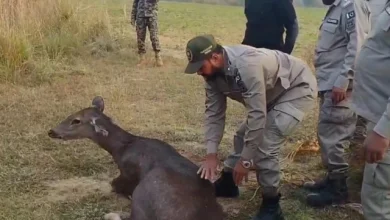Can markets save the climate? Technocrats still say yes

Mobilising Climate Financing for Social Protection. Photo: Express
BRASILIA:
Is there a market-based way out of the climate crisis? Technocrats are still holding on to hope.
This question set the tone at a COP roundtable titled “Mobilising Climate Financing for Social Protection”, where participants confronted the widening gap between climate ambition and the lived realities of vulnerable communities.
The moderator opened with a grim reminder: “Global report on food crisis: number of people facing food security has more than tripled from 2018 till now”.
The event, organised by the COP presidency, sought to explore how the most severe consequences of climate change can be addressed through smart climate financing, in order to avoid the harshest outcomes for the most marginalised. The event was attended by several members of civil societies, banks and ministries.
To understand why the climate-finance debate keeps circling the same obstacles, it helps to revisit its intellectual lineage. Marc Carney — now Canada’s prime minister, but long before that a central-bank heavyweight — was a finance guru with a focus on climate change.
During and after being the head of the Bank of Canada under Stephen Harper, and later the Bank of England in the UK, he went out of his way to lay the foundations for modern “climate financing,” where the idea would be to find capital and investment focused on addressing climate change.
In his famous speech “Tragedy of the Horizon”, he emphasises the importance of the stability of the climate to the stability of our markets. His focus on the matter got him appointed as UN special envoy on Climate Action and Finance.
However, in a long tradition of politics, PM Carney has been accused by journalists and civil society of having gone back on many of his promises, presumably not due to a reversal of his beliefs, but rather due to what he sees as practical manoeuvring to stay in power, a common pattern of behaviour among politicians across the political spectrum.
At this panel on climate financing at COP, a few speakers made their argument for the future of climate finance, with some pushback and questions from members of civil society.
A representative from UNCDF mentioned that “We believe in the role of supporting small communities”.
This is important to acknowledge as a need, considering that it is generally difficult for smaller countries to access major financing, and yet it is often the smaller countries in the global south that are impacted with acute severity.
The example of Muhammad Younus’s banking innovation to provide small loans to poor communities, known as “micro financing,” is one aspect that was not discussed as a potential part of the larger climate finance plan.
Muhammad Younus was awarded the Nobel Peace Prize in 2006 for his efforts in this area.
An important remark was made, yet again, by the moderator: “At a community level, there are no conventions, only reality.” It was a crucial reminder that what is missing from all of these discussions and conventions is the voices of ordinary farmers themselves, instead of those who care on their behalf and directly or indirectly end up speaking for them.
A lady in the audience asked a potent question; she mentioned that “Suicide is increasing” amongst many farmers in the global south, as income generated from farming keeps reducing.
We are faced with a real risk – or reality, some would say — during the Conference of the Parties conventions, of neglecting the opinions and complaints of the directly impacted communities. All we have is a second-hand account of suffering, which may end up inevitably watering down the “reality”.
Part of the event was focused on “social protection” and how that relates to climate financing. In a presentation by Tshewang Dorji, a senior climate change specialist with the Global Environment Facility, he acknowledged that there has been a gap between “climate finance” and “social protection”.
According to him, “social protection” consists of government-led policies and programs to reduce poverty, vulnerability and exclusion.


